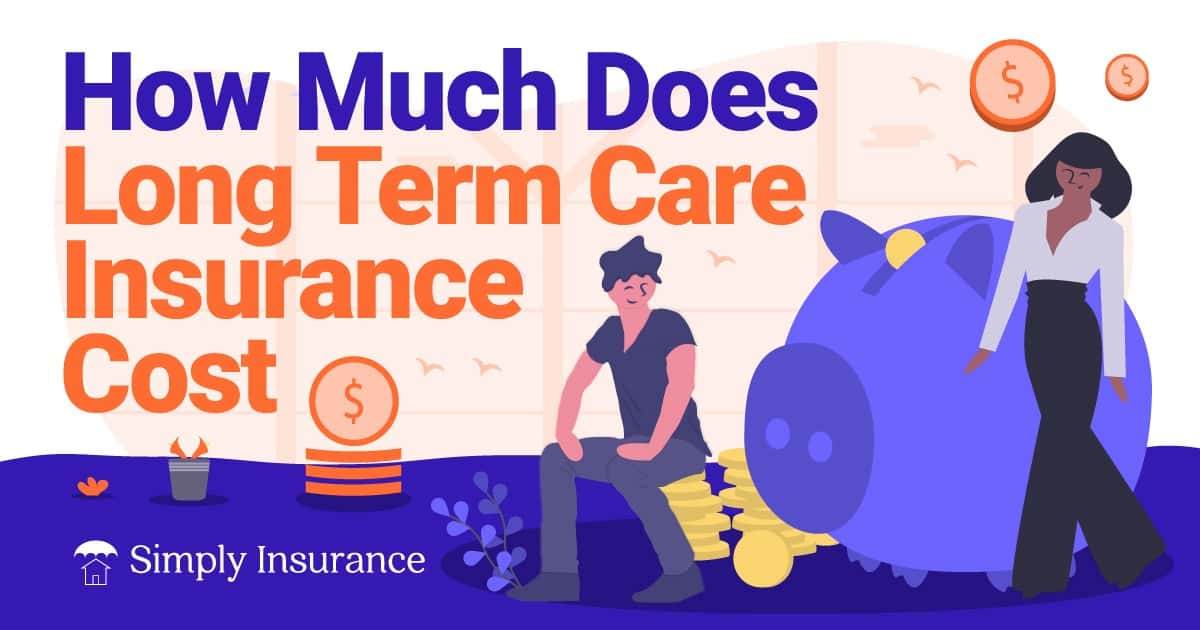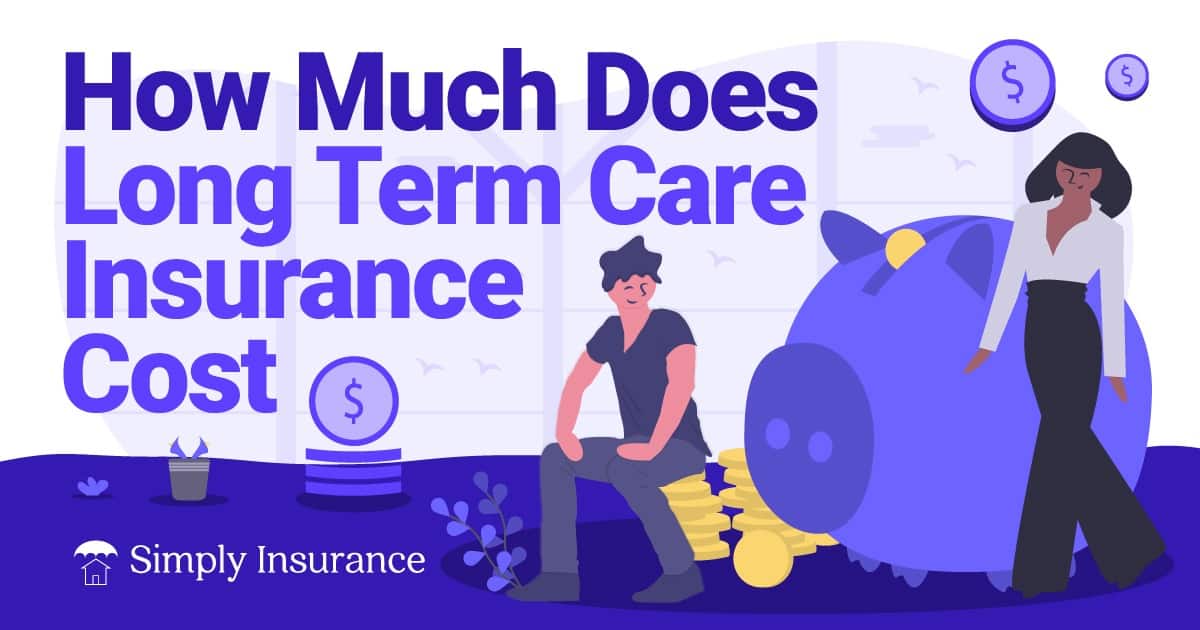How Much Does Long Term Care Insurance Cost In 2022?

One of the most significant factors to consider when looking for long-term care insurance is the costs involved.
That’s why:
Before you decide on a policy, you should shop around and work to understand the variables involved.
There is no way to make a smart purchasing decision if you don’t have an idea of what the costs should be. Today, we’ll give some brief background on long-term care insurance, and then answer the most crucial question— how much does long-term care insurance cost on average?
How Much Does Long-Term Care Insurance Cost?
As of this year (2022), the average cost of a long term care insurance policy for a single 55-year-old man is around $950 per year. Compared to a 55-year-old single woman, on average in 2021 with $165,000 coverage benefit, will pay $1,500 per year. However, keep in mind that your rates will vary based on age, policy type, medical status, and marital status.
Examples of Long-Term Care Insurance Costs
According to the American Association for Long-Term Care Insurance (AALTCI), your insurance costs vary based on age, gender, and couple status.
Below are the average annual costs for long term care insurance by age:
The above figures are from aaltci.org 2022 long term care report. As you can see, women almost always pay more for long-term care insurance than men, making it even more critical to purchase early if you’re female. These rates have decreased since 2019 but premiums are still expensive.
Long-term Care Insurance made easy.
Agents not required.
Get quotes and sign up online without talking to an agent. But, we are here if you need us.
Unbiased, expert advice.
Get unbiased insurance education from licensed experts and also avoid dodgy sales calls.
Coverage in minutes.
You can get long-term care insurance coverage within minutes of getting your quotes and applying.
Why Get Long-Term Care (LTC) Insurance?
While some people do have enough savings to cover their long-term care, the majority do not.
On average, it takes $1.5 million in savings to afford this care comfortably. That number goes up the longer you require care, too.
Long-term care insurance covers expenses you may not have the funds for without it. Plus, it offers death benefits to your family.
However, you might also consider the fact that you may not need long-term care in the future.
By purchasing long-term care insurance, you’re preparing for a hypothetical situation. Whether you choose to buy a policy or not presents different risks on both sides.
If you don’t require long-term care, you’ve paid for something you never used for 20 to 30 years.
At the same time, if you do need long-term care and your savings don’t cover it, you could find yourself without the care you need.
Even if you don’t use the policy during your lifetime, the death benefits paid to your family can help beyond the period of care.
Will The Government Pay for Long-Term Care?
Usually, the government will not pay for your long-term care. Medicare does not cover these expenses.
Medicare Part A may cover short-term nursing home expenses or hospice care for less than six months, but nothing more.

Most people who turn to government assistance for long-term care have Medicaid. However, Medicaid won’t cover all individuals.
Medicaid is a program intended for people whose income falls below a certain level and is intended for low-income families.
That means that if you have more than $2,000 in assets, you probably don’t qualify.
Medicaid eligibility also varies by state. Your eligibility in Massachusetts may not be the same as it would be in New York, California, or Texas.
The State Overviews page on the Medicaid website can help you determine your eligibility for long-term care.
The National Institute on Aging lists several government programs that can help with long-term care as well.
These include the Program for All-Inclusive Care for the Elderly (PACE), State Health Insurance Assistance Program (SHIP), Department of Veterans Affairs (VA), and Social Security Disability Income (SSDI).
The problem with any government-run program is that not everyone is eligible for all or any of them.
For this reason, you must understand whether you qualify for these programs. If not, you must prepare with long-term care insurance or an alternative.
Should Young Adults Buy LTC Insurance?
Young adults don’t need to buy long-term care insurance for themselves. After all, if you buy a policy in your 30s, you’ll pay premiums for far longer than necessary.
However, if you are a young adult, you can purchase long-term care insurance for your parents.
This decision depends on your ability to afford these costs, but it could be an investment that helps the whole family in the future.
On top of ensuring your loved ones are covered in their time of need, you ensure that those costs and potential debts don’t fall to you.
Long-term care insurance by state.
Taking Action
When considering long-term care insurance, it’s essential to know how much it will cost.
Whether you’re in your 50s and anticipating the future care you’ll need, or in your 20s or 30s and thinking about care for your parents, long-term care insurance might be the right choice.
Consider your personal needs, as well as what long-term care insurance can do for you.
You can click here to get a few quotes or any of the buttons above to start your long-term care insurance journey.






